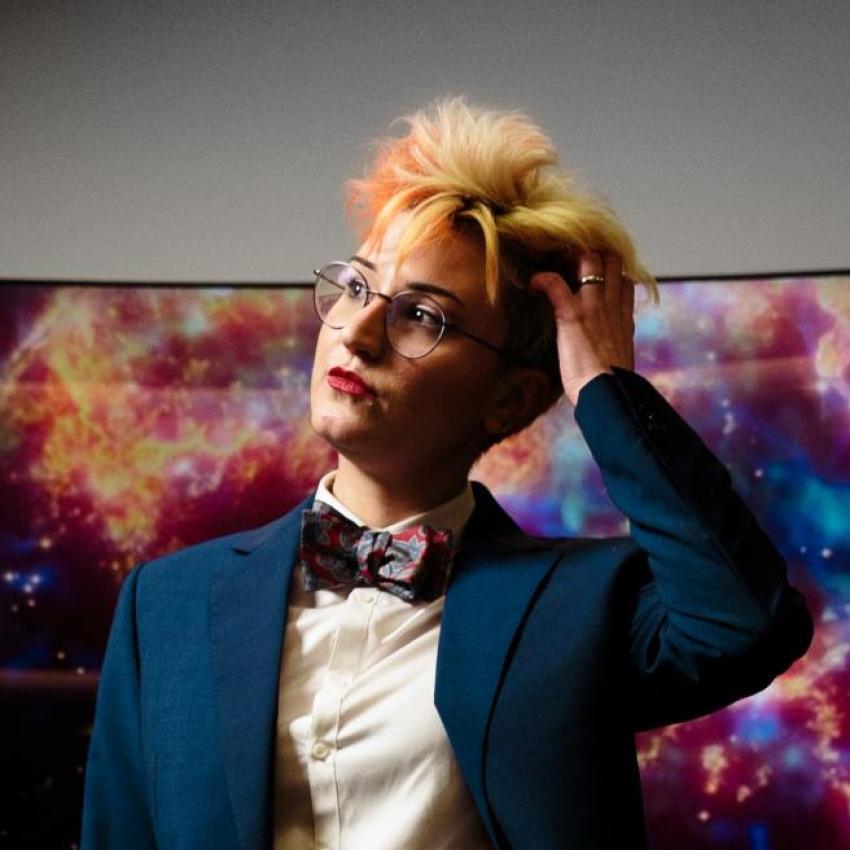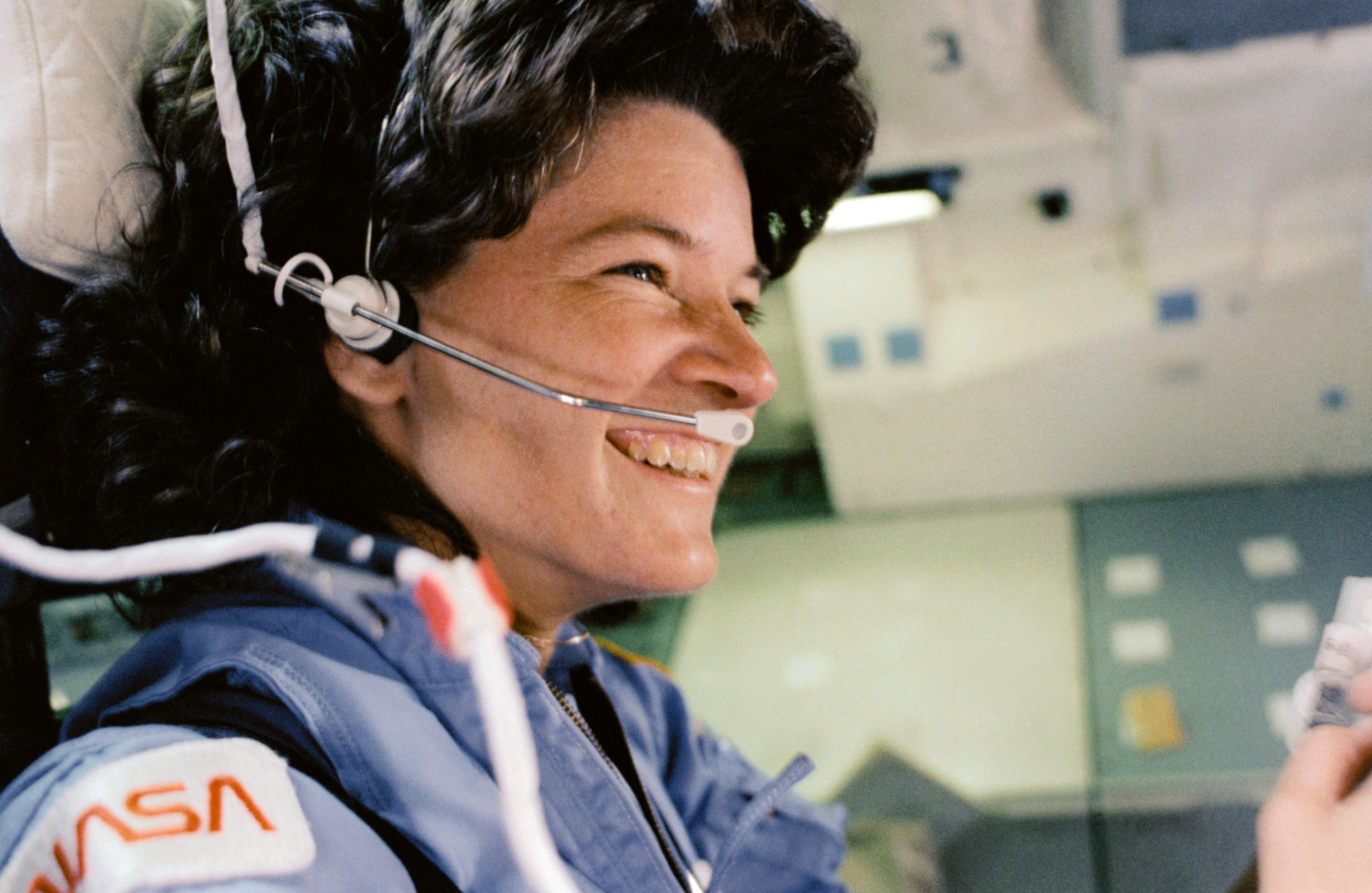AAS Committee on the Status of Women
Issue of July 26, 2024
eds: Jeremy Bailin, Nicolle Zellner, Sethanne Howard, and Hannah Jang-Condell
[We hope you all are taking care of yourselves and each other. --eds.]
This week's issues:
1. Cross-post: Vera Rubin found a lifetime of wonder in the dark skies
2. Physicist, 98, honoured with doctorate 75 years after groundbreaking discovery
3. Female Scientists Are Leaving Academia Mid Career. Why It’s Important And What We Can Do About It.
4. IAU WiA Gender Equity Survey
5. How to Submit to the AASWomen Newsletter
6. How to Subscribe or Unsubscribe to the AASWomen Newsletter
7. Access to Past Issues of the AASWomen Newsletter
An online version of this newsletter will be available at http://womeninastronomy.blogspot.com/ at 3:00 PM ET every Friday.
-------------------------------------------------------------------------------
1. Cross-post: Vera Rubin found a lifetime of wonder in the dark skies
From: Nicolle Zellner via womeninastronomy.blogspot.com
By Elizabeth Gamillo
A century ago galaxies in our universe perplexed astronomers. Just a decade after the realization of what galaxies are, astronomers first noticed that spiral galaxies were rotating strangely. Their outer areas were rotating around the galactic centers nearly as quickly as their inner “hubs.” Something must have been helping the rotation along. In 1933, astronomer Fritz Zwicky first suggested that an unseen component, which he called dark matter, must exist.
Three decades after dark matter was hypothesized, in a breakthrough moment, one astronomer collected the first direct evidence of dark matter’s existence. Her name was Vera Rubin, and her work helped to revolutionize astronomy in the middle part of the 20th Century.
Read more at
https://womeninastronomy.blogspot.com/2024/07/cross-post-vera-rubin-found-lifetime-of.html
-------------------------------------------------------------------------------
2. Physicist, 98, honoured with doctorate 75 years after groundbreaking discovery
From: Jeremy Bailin [jbailin_at_ua.edu]
By Mabel Banfield-Nwachi
A trailblazing physicist who gave up her PhD 75 years ago to have a family has received an honorary doctorate from her former university.
Rosemary Fowler, 98, discovered the kaon particle during her doctoral research under Cecil Powell at the University of Bristol in 1948, which contributed to his Nobel prize for physics in 1950.
She has now been awarded an honorary doctor of science by the University of Bristol chancellor, Sir Paul Nurse, in a private graduation ceremony close to her Cambridge home.
Read more at
-------------------------------------------------------------------------------
3. Female Scientists Are Leaving Academia Mid Career. Why It’s Important And What We Can Do About It.
From: Nicolle Zellner [nzellner_at_albion.edu]
By Bonnie Marcus
There is a disturbing trend in academia. Female scientists are leaving academic institutions at the peak of their career.
The equal representation of women in research is important for the overall quality and performance of our academic institutions. Diversity of thought stimulates discussion and facilitates the creation of new ideas and perspectives. The loss of an entire gender’s input represents a loss of half the best and brightest minds in science, and puts the quality of scientific research in jeopardy.
In our recent conversation, we discussed some of the major reasons women at the peak of their careers are leaving their academic institutions.
Read more at
-------------------------------------------------------------------------------
4. IAU WiA Gender Equity Survey
From: Sethanne Howard [sethanneh_at_msn.com]
In alignment with our commitment to Equity, Diversity, and Inclusion in astronomy, we kindly request your participation in the Gender Equity Survey organized by the IAU Women in Astronomy Working Group. This survey aims to provide National Astronomy Communities (NACs) and institutions with an updated overview of global efforts to ensure equal opportunities for individuals of all genders in astronomy. The insights gathered will help us adopt best practices to promote diversity and inclusion in the field.
Please take a moment (max 7 mins) to complete the survey using the following link:
https://forms.gle/qjZ4h3w1A2Hgqfdi6
-------------------------------------------------------------------------------
5. How to Submit to the AASWOMEN newsletter
To submit an item to the AASWOMEN newsletter, including replies to topics, send email to aaswomen_at_lists.aas.org .
All material will be posted unless you tell us otherwise, including your email address.
When submitting a job posting for inclusion in the newsletter, please include a one-line description and a link to the full job posting.
Please remember to replace "_at_" in the e-mail address above.
--------------------------------------------------------------------------------
6. How to Subscribe or Unsubscribe to the AASWOMEN newsletter
Join AASWomen List through the online portal:
To Subscribe, go to https://aas.simplelists.com/aaswlist/subscribe/ and enter your name and email address, and click Subscribe. You will be sent an email with a link to click to confirm subscription.
To unsubscribe from AASWomen by email:
Go to https://aas.simplelists.com/aaswlist/subscribe/ , in the "My account and unsubscriptions", type your email address. You will receive an email with a link to access your account, from there you can click the unsubscribe link for this mailing list.
--------------------------------------------------------------------------------
7. Access to Past Issues
















